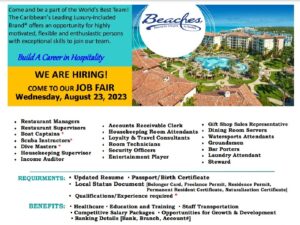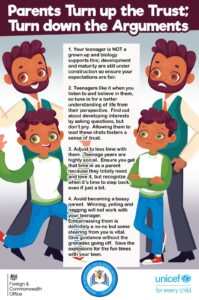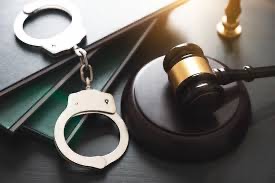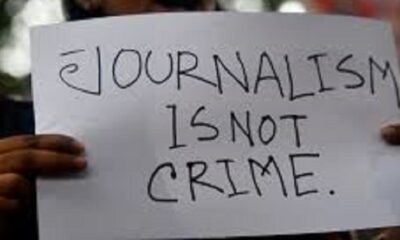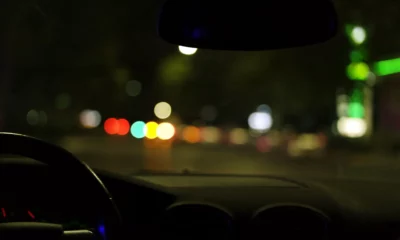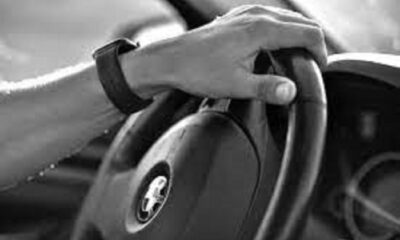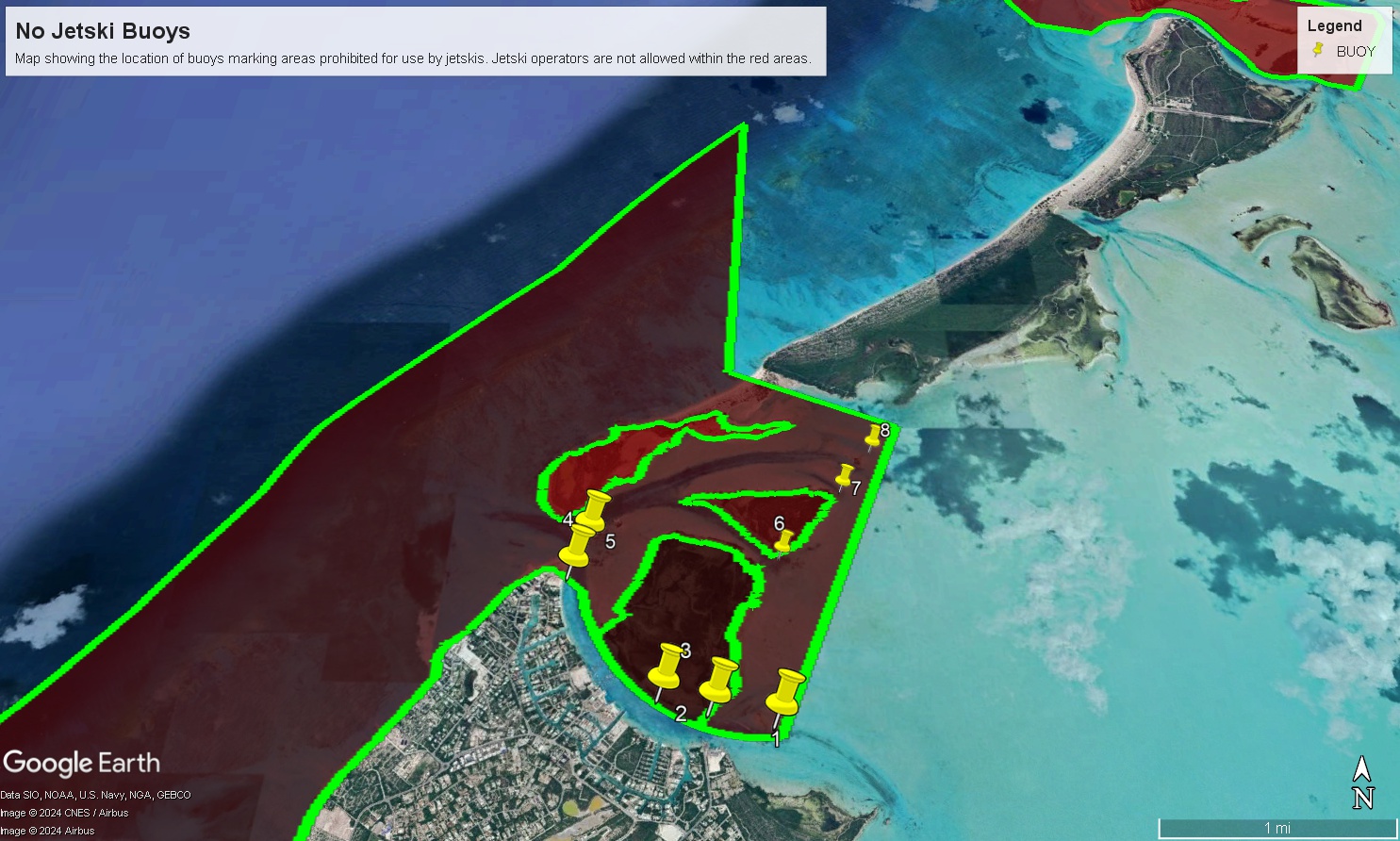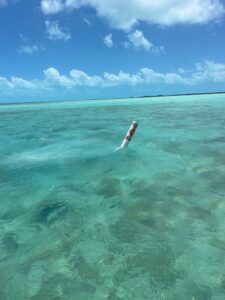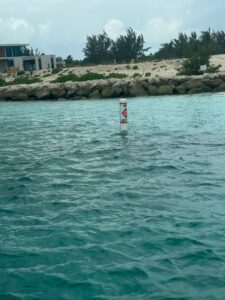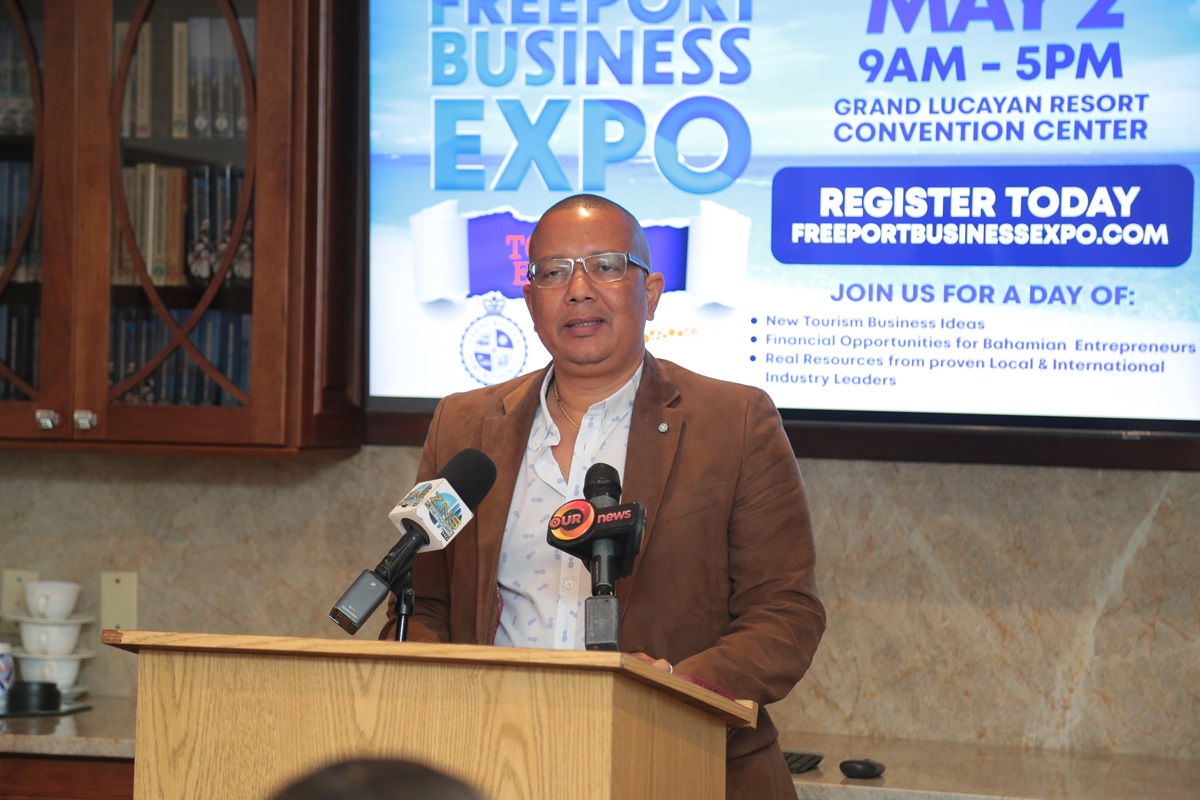April 29th, 2024
While you’re packing your sunscreen and snorkel gear, don’t forget to check your luggage and clothing to remove all guns and ammunition. Many countries in the Caribbean do not allow possession of firearms or ammunition unless you have a local permit and, if arrested while traveling, the United States Embassy will not be able to secure your release.
What to Know Before You Go:
- Declaring a weapon in your checked luggage with an airline carrier does not grant you permission to bring the weapon into other countries. It is the responsibility of the traveler to research local laws and complete all necessary forms prior to travel.
- Research the laws of the country you will be traveling to. Check the U.S. Department of State Bureau of Consular Affairs and contact the foreign embassy in the United States prior to travel to ensure you have the most up-to-date information.
IF YOU’RE TRAVELING TO THE CARIBBEAN, KNOW THAT IT IS ILLEGAL TO IMPORT OR EXPORT FIREARMS OR AMMUNITION TO OR FROM ANY CARICOM (CARIBBEAN COMMUNITY) MEMBER(LINK IS EXTERNAL) STATES UNLESS YOU HAVE A FIREARM IMPORT LICENSE OR A FIREARM EXPORT LICENSE GRANTED BY THE APPROPRIATE AUTHORITY (SUCH AS THE COMMISSIONER OF POLICE).
GRANTED BY THE APPROPRIATE AUTHORITY (SUCH AS THE COMMISSIONER OF POLICE).
Where Are You Traveling To?
Full Member States
Antigua and Barbuda
Do not enter Antigua and Barbuda with firearms or ammunition without prior express consent from the Antigua and Barbuda government. Penalties for possession, use, or trafficking in illegal drugs or firearms are severe. Convicted offenders can expect long jail sentences and heavy fines. Contact the Embassy of Antigua and Barbuda(link is external) with questions regarding travel with firearms.
The Bahamas
Firearms, ammunition, and other weapons are not permitted in The Bahamas. According to The Bahamas Firearms Act, individuals found to have a firearm or ammunition in their possession without a legally issued Bahamian gun license face a penalty of up to 10 years’ incarceration and $10,000 fine. Declaring the weapon in your luggage with an airline carrier does not grant permission to bring the weapon into The Bahamas.
If you have a firearm or ammunition onboard a boat entering Bahamian waters, you must declare it with Bahamian Customs at the first point of entry. Only declared shotguns and handguns are allowed in Bahamian waters. You must provide the serial number, name of the manufacturer, and an exact count of ammunition. Declared firearms cannot be removed from your boat and must be kept locked at all times.
If a U.S. citizen illegally brings a firearm or ammunition into The Bahamas, the U.S. Embassy will not be able to secure their release. All foreign nationals are subject to Bahamian law and must follow local law enforcement procedures.
Barbados
Do not enter Barbados with firearms or ammunition without prior express consent from the Barbados government. Penalties for possession, use, or trafficking in illegal drugs or firearms are severe. Convicted offenders can expect long jail sentences and heavy fines. Contact the Embassy of Barbados(link is external) with questions regarding travel with firearms.
Belize
Do not enter Belize with firearms or ammunition without prior express consent from the government of Belize. Contact the Embassy of Belize(link is external) with questions regarding travel with firearms.
Dominica
Do not enter Dominica with firearms or ammunition without prior express consent from the Dominican government. Penalties for possession, use, or trafficking in illegal drugs or firearms are severe, and convicted offenders can expect long jail sentences and heavy fines. Contact the Embassy of Domenica(link is external) with questions regarding travel with firearms.
Grenada
Do not enter Grenada with firearms or ammunition without prior express consent from the government of Grenada. Contact the Embassy of Grenada(link is external) with questions regarding travel with firearms.
Guyana
Do not enter Guyana with firearms or ammunition without prior express consent from the Guyana Police Force. Visit the Guyana Police Force(link is external) and U.S. Customs and Border Protection websites for more information.
Haiti
Possession of firearms, ammunition, and dangerous weaponry is strictly prohibited to any person, unless the individual has a Haitian license or has been specifically authorized by Haitian authorities. In order to bring a firearm into Haiti, an owner must obtain written permission in advance from the Director-General of the Haitian National Police (HNP). Contact the “Centre de Renseignement de la police”/Information Center (CRO) at cropnh@yahoo.fr(link is external) or by telephone at (+509) 3838-1111 / 3837-1111/3839-1111 for additional information. Travelers caught entering Haiti with any type of weapon, including firearms or ammunitions, will likely face severe penalties, including prison time. U.S.-issued permits allowing an individual to carry weapons are not valid in Haiti.
Jamaica
Jamaica strictly forbids importing or possessing firearms in Jamaica without prior authorization of the Firearms Licensing Authority of Jamaica. A U.S. concealed carry permit does not allow you to bring a firearm or ammunition into Jamaica. On Nov. 1, 2022, the Firearms (Prohibition, Restriction and Regulation) Act 2022(link is external) went into effect. This new law includes mandatory minimum sentences of 15 years for possession of even a single cartridge.
If you bring an unauthorized firearm, firearm components, firearm parts or ammunition to Jamaica, you will be arrested and prosecuted. This will result in a large fine and/or incarceration for an unspecified amount of time. Bringing mace, pepper spray or knives into Jamaica without authorization will also lead to arrest.
Montserrat
Penalties for possession, use, or trafficking in illegal firearms are severe. Convicted offenders can expect long jail sentences and heavy fines. Do not enter Montserrat with firearms or ammunition without prior express consent from the British government. Contact the British Embassy(link is external) before you travel with questions regarding travel with firearms.
Saint Kitts and Nevis
Do not enter Saint Kitts and Nevis with firearms or ammunition without prior express consent from the government of Saint Kitts and Nevis. Penalties for possession, use, or trafficking in illegal drugs or firearms are severe, and convicted offenders can expect long jail sentences and heavy fines. Contact the Embassy of Saint Kitts and Nevis(link is external) before you travel.
Saint Lucia
Do not enter Saint Lucia with firearms or ammunition without prior express consent from the Saint Lucia government. Penalties for possession, use, or trafficking in illegal drugs or firearms are severe. Convicted offenders can expect long jail sentences and heavy fines. Contact the Embassy of Saint Lucia(link is external) with questions regarding travel with firearms.
Saint Vincent and the Grenadines
Do not enter Saint Vincent and the Grenadines with firearms or ammunition without prior express consent from the Saint Vincent and the Grenadines government. Penalties for possession, use, or trafficking in illegal drugs or firearms are severe. Convicted offenders can expect long jail sentences and heavy fines. Contact the government of Saint Vincent and the Grenadines(link is external) before you travel with questions regarding travel with firearms.
Suriname
Trinidad and Tobago
It is illegal to carry ammunition when arriving, departing or transiting through Trinidad and Tobago. Individuals found with as little as one bullet, a previously discharged bullet casing, or spent ammunition used in items such as jewelry or keyrings on their person or in their luggage at the airport have been detained, charged, and fined.
Associate States
Anguilla
Do not enter Anguilla with firearms or ammunition without prior express consent from the British government. Penalties for possession, use, or trafficking in illegal drugs or firearms are severe, and convicted offenders can expect long jail sentences and heavy fines. Contact the British Embassy(link is external) before you travel with questions regarding travel with firearms.
Bermuda
The Department of State warns United States citizens against taking any type of firearm, ammunition or component of a firearm into Bermuda. The Bermuda government strictly enforces its laws restricting the entry of weapons and ammunition. Entering Bermuda with a firearm, bladed instruments, an ammunition magazine, or even a single round of ammunition is illegal, even if the weapon or ammunition is taken into the country unintentionally. Permission to import or own a gun in Bermuda must be sought in advance from the Bermuda Police Service(link is external). Any privately owned firearms must be secured at Bermuda Police Headquarters. Violations may result in arrest, convictions, and potentially long prison sentences. Pepper sprays and stun guns are considered dangerous weapons in Bermuda and are illegal.
British Virgin Islands
Firearms entry restrictions may exist for visitors to and foreign residents of the British Virgin Islands. Contact the BVI Immigration Department(link is external) before you travel. Penalties for possession, use or trafficking in illegal drugs or firearms are severe, and convicted offenders can expect long jail sentences and heavy fines.
Cayman Islands
You are strictly forbidden to import or possess firearms or ammunition in the Cayman Islands. Even a single bullet inadvertently loose in a carry-on bag can lead to arrest. A conceal carry permit, employment by a police agency, or service in U.S. Armed Forces does not allow you to bring a firearm or ammunition into the Cayman Islands. If you travel with firearms, firearm components or parts and/or ammunition to the Cayman Islands, you will be arrested and referred to the local courts for prosecution, which will result in a substantial fine and/or incarceration for an unspecified amount of time.
parts and/or ammunition to the Cayman Islands, you will be arrested and referred to the local courts for prosecution, which will result in a substantial fine and/or incarceration for an unspecified amount of time.
Turks and Caicos Islands
Firearms, ammunition, and other weapons are not permitted in the Turks and Caicos Islands (TCI). TCI authorities strictly enforce all firearm-related laws; penalties include a minimum custodial sentence of 12 years according to the TCI Firearms Ordinance(link is external). Declaring the weapon in your luggage with an airline carrier does not grant permission to bring the weapon into the Turks and Caicos Islands.
Observer States
Aruba
Colombia
Colombian law prohibits tourists and business travelers from bringing firearms and ammunition into Colombia.
Curaçao
Dominican Republic
Mexico
Weapons laws in Mexico vary by state, but it is generally illegal for travelers to carry weapons of any kind including firearms, knives, daggers, brass knuckles and ammunition (even used shells). Illegal firearms trafficking from the United States to Mexico is a major concern, and the Department of State warns all U.S. citizens against taking any firearm or ammunition into Mexico. If you are caught entering Mexico with any type of weapon, including firearms or ammunitions, you likely will face severe penalties, including prison time. U.S.-issued permits allowing an individual to carry weapons are not valid in Mexico. Vessels entering Mexican waters with firearms or ammunition on board must have a permit previously issued by a Mexican embassy or consulate.
Puerto Rico
Under the “Puerto Rico Weapons Act,” individuals are required to have a license to possess and a permit to carry firearms in Puerto Rico.
Sint Maarten
Venezuela
More Resources:
Original warning from the ATF can be found here:


 TCI News1 week ago
TCI News1 week ago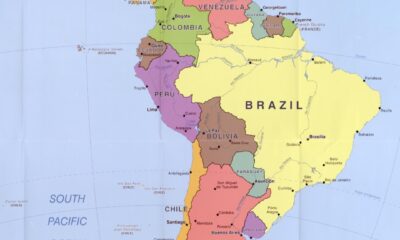
 Latin America and Caribbean7 days ago
Latin America and Caribbean7 days ago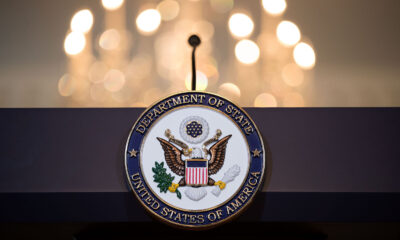
 Crime1 week ago
Crime1 week ago
 Bahamas News1 week ago
Bahamas News1 week ago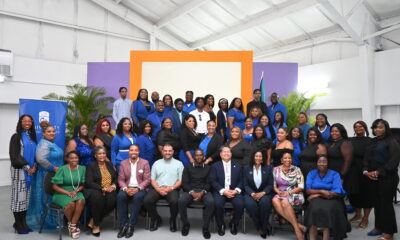
 Bahamas News5 days ago
Bahamas News5 days ago
 Caribbean News1 week ago
Caribbean News1 week ago
 Caribbean News1 week ago
Caribbean News1 week ago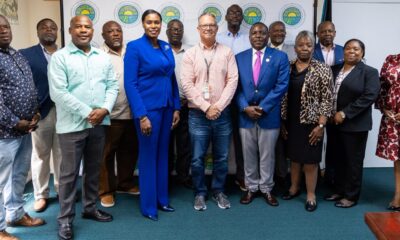
 Bahamas News6 days ago
Bahamas News6 days ago
